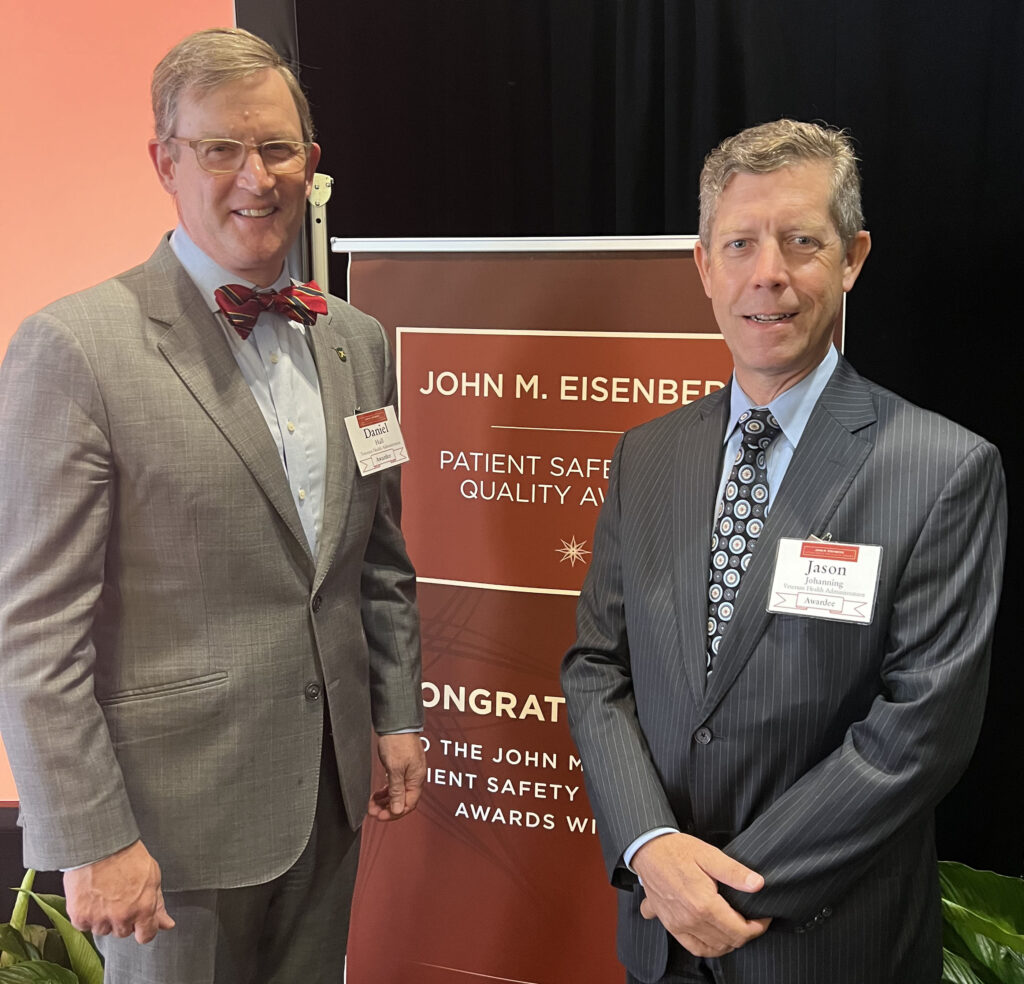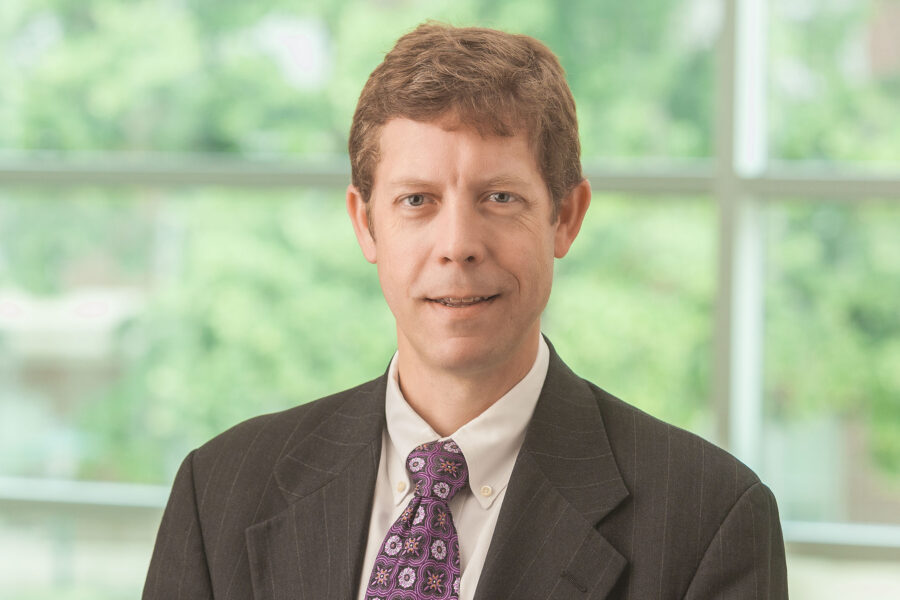An innovation pioneered by a UNMC faculty member at the Omaha VA Medical Center has been honored with the prestigious John M. Eisenberg Patient Safety and Quality Award.
The Eisenberg awards, through the National Quality Forum and the Joint Commission “recognize the best examples of individual, local, and national efforts to improve patient safety and health care quality,” according to a Joint Commission release.
The Veterans Health Administration and “the Surgical Pause” recently took home the top national honor in the National Level Innovation in Patient Safety and Quality category.

Jason Johanning, MD, UNMC professor of surgery and medical director of the VA Surgery Quality Improvement Program, accepted the award with collaborator Daniel Hall, MD.
What is “the Surgical Pause”?
In the early 2010s, the Omaha VA was experiencing a significant number of patients with poor and unexpected outcomes post-surgery. It turned out, many of them were too frail to undergo even “simple” procedures. But patients and physicians didn’t realize this until after surgical intervention.
Dr. Johanning, who has a background in geriatric research, suggested a solution to VA surgeons.
What happened next? “It was dramatic,” said Dr. Johanning, who then was chief of surgery at Nebraska/Western Iowa VA Medical Center. “The impact of frailty on risk prediction for surgery … essentially, almost one out of two patients who are frail will have a major surgical complication.”
Those findings correlated with VA data that shows, nationally, one in three frail veterans die within six months of even a “small surgery.”
Dr. Johanning’s solution was based on an idea. What if there was a quick and easy way to screen for frailty before undergoing an operation? Patients and medical professionals could better prepare for surgery and its aftermath. Or weighing risk vs. reward, they perhaps could even choose another intervention with nearly equivalent outcomes.
Dr. Johanning and the Omaha VA site put together a quick way to score a patient’s level of frailty before performing surgery. That intervention was the screening tool known as the Risk Analysis Index. Using the newly developed “RAI”, the team then implemented frailty screening in Omaha, in conjunction with palliative care, looking for ways to optimize outcomes. These results, Dr. Johanning reported, were equally dramatic. Mortality among the frail improved three-fold.
Dr. Johanning and the Omaha team then partnered with VA-academic counterparts in Pittsburgh before expanding nationwide. Dr. Hall, of the VA Pittsburgh Healthcare System and the University of Pittsburgh, is a general surgeon and epidemiologist, and he and his team added rigor to Dr. Johanning’s idea.
What was to become known as “the Surgical Pause” continued to find success and has spread to more than 50 major VA medical centers across the country. It also is utilized at multiple unaffiliated private sector hospitals, some with nearly 1 million frailty assessments since introduction. The results continue to be impressive, both statistically and in patients’ lives.
More important than any honor, Dr. Johanning said, is that lives are improved and even saved through this new standard of care. How? “We pause at that yellow light, and we take our time in the preoperative process to optimize their outcomes with pre-rehabilitation, nutritional optimization, physical therapy optimization, etc., etc.,” he said. “And for those for whom surgery may be a prohibitive risk or not goal concordant, or they say, ‘Hey, I don’t want to take that risk,’ we offer them other therapies.”
Bottom line, “the concept is we are now able to tailor the intervention to match the ability of the patient to tolerate the physiologic insult immediately in clinic,” Dr. Johanning said.
It sounds common sense. But previous conventional wisdom held that frailty assessment had to be done in a comprehensive research environment, rather than through, well, a pause.
Turns out, Dr. Johanning found, the information needed to inform decisions can be gleaned from a list of yes-no questions patients can answer themselves in 60 seconds or less.
The concise series of questions is much more effective than even a physician giving a patient the “eyeball test,” Dr. Johanning said. (People can look great for the doctor on a good day.)
Adoption of this new concept “happened incredibly fast,” Dr. Johanning said. “It’s like moving the needle in half to a third of the usual time.”
Was everyone on board immediately? No. But that just meant the idea was novel, Dr. Johanning said. “If you’re innovative enough, you better have people telling you ‘no.’”
One of the most gratifying things, Dr. Johanning said, has been that those who were questioning at first have become among the idea’s biggest supporters, once the data came in.

Great job Jason!!
So pleased that all of your innovation and hard work is recognized. I am AGS PROUD of you
Remarkable innovation! Congratulations on your award for this initiative !
Wow, congrats on this award, Jason. This is beyond impressive. U da’ man!
Congratulations on your award what a wonderful accomplishment! It’s great to work for such amazing Surgeons!
thanks for continuing to be a role model to all of us!
Congratulations Jason. Your commitment to patient care and learner education is outstanding and a valuable role model.